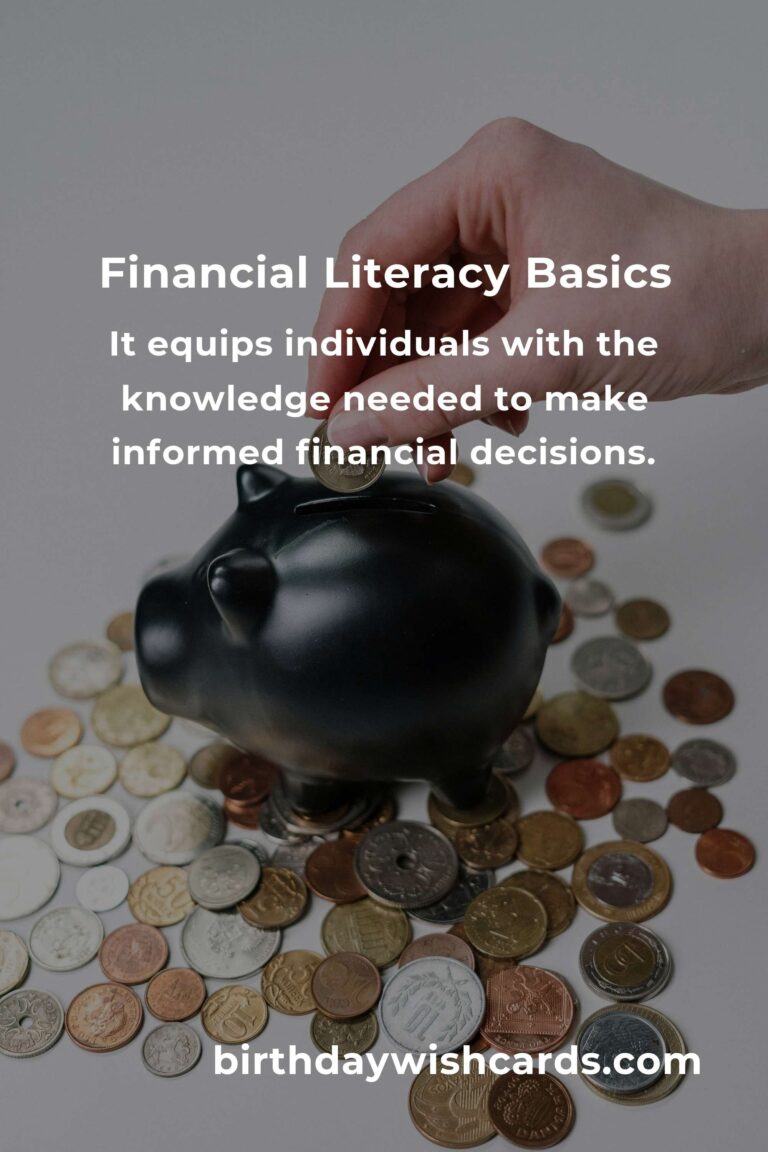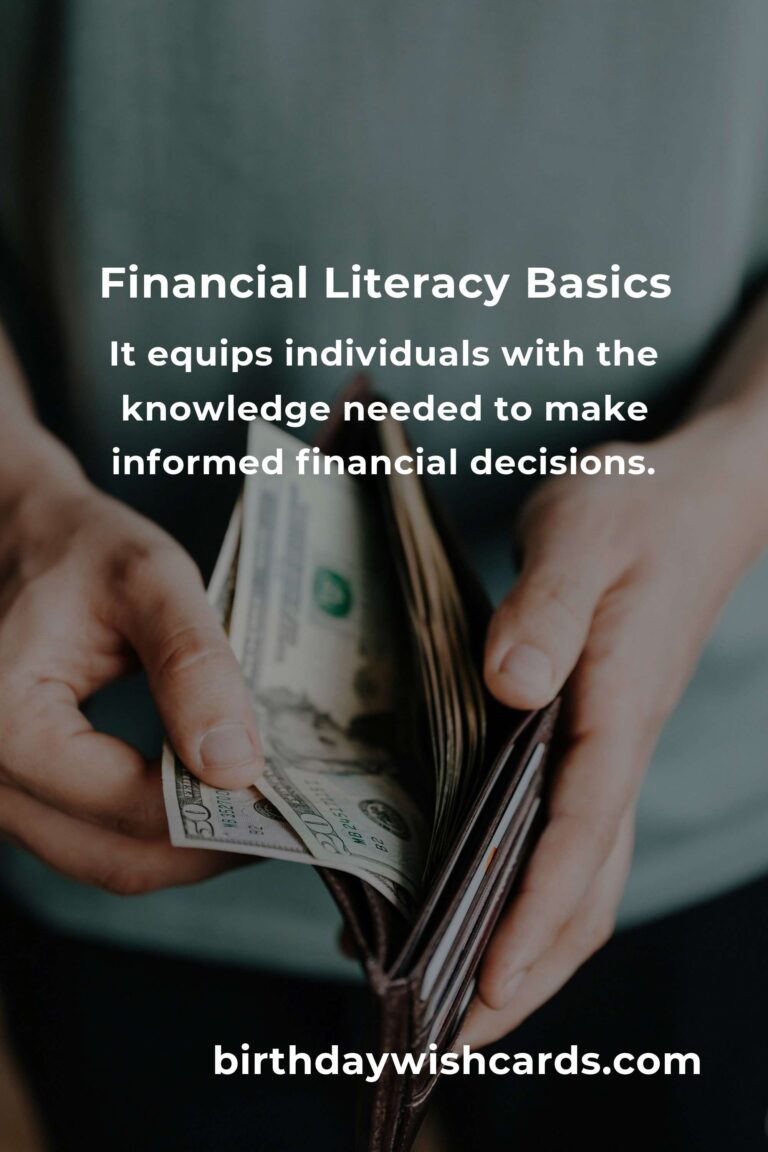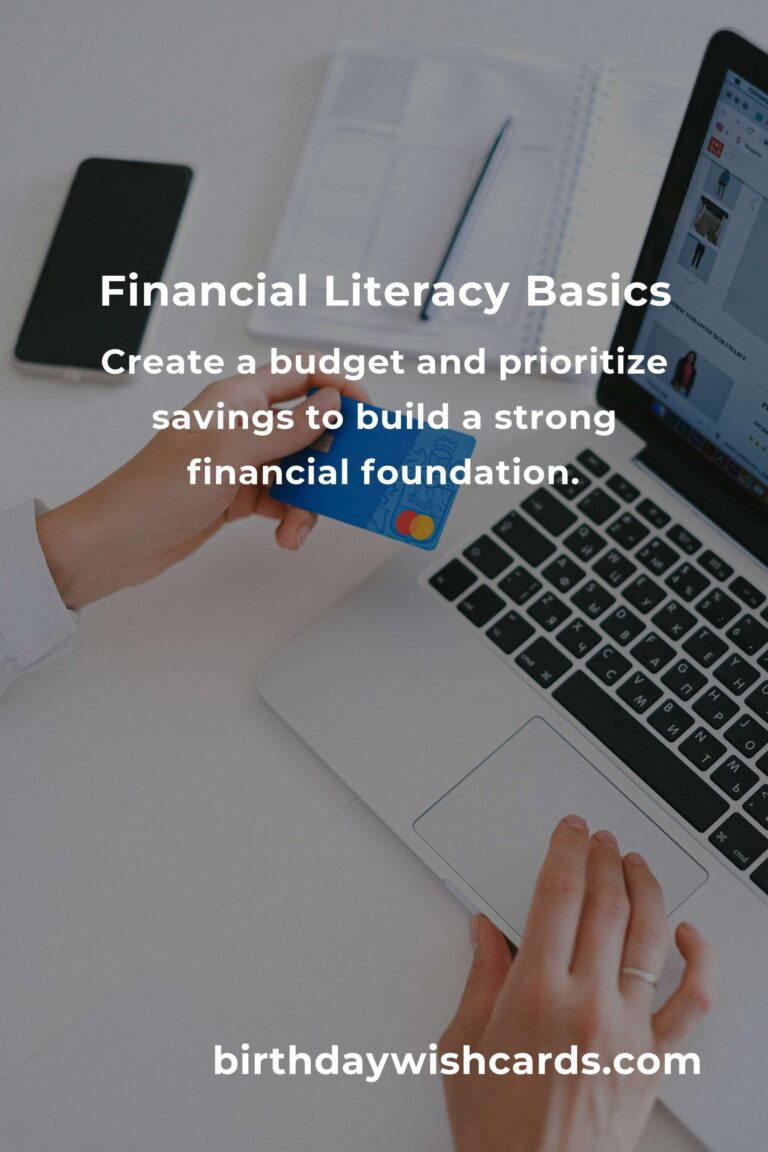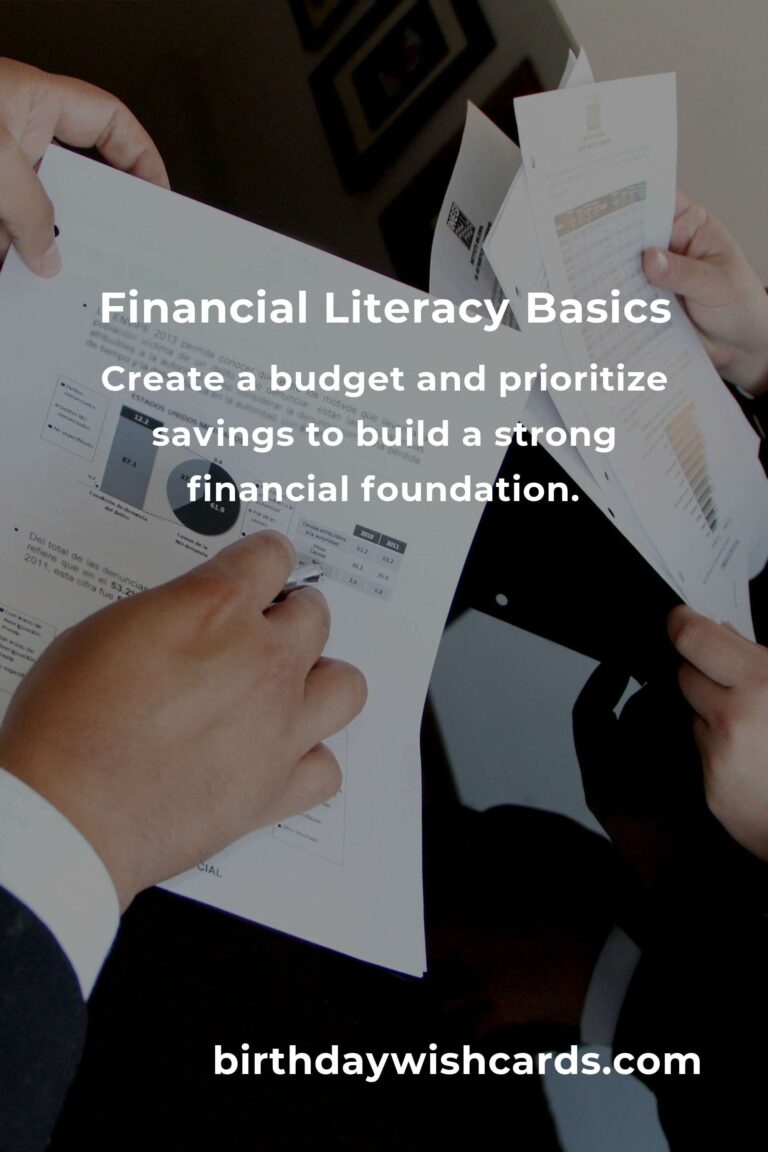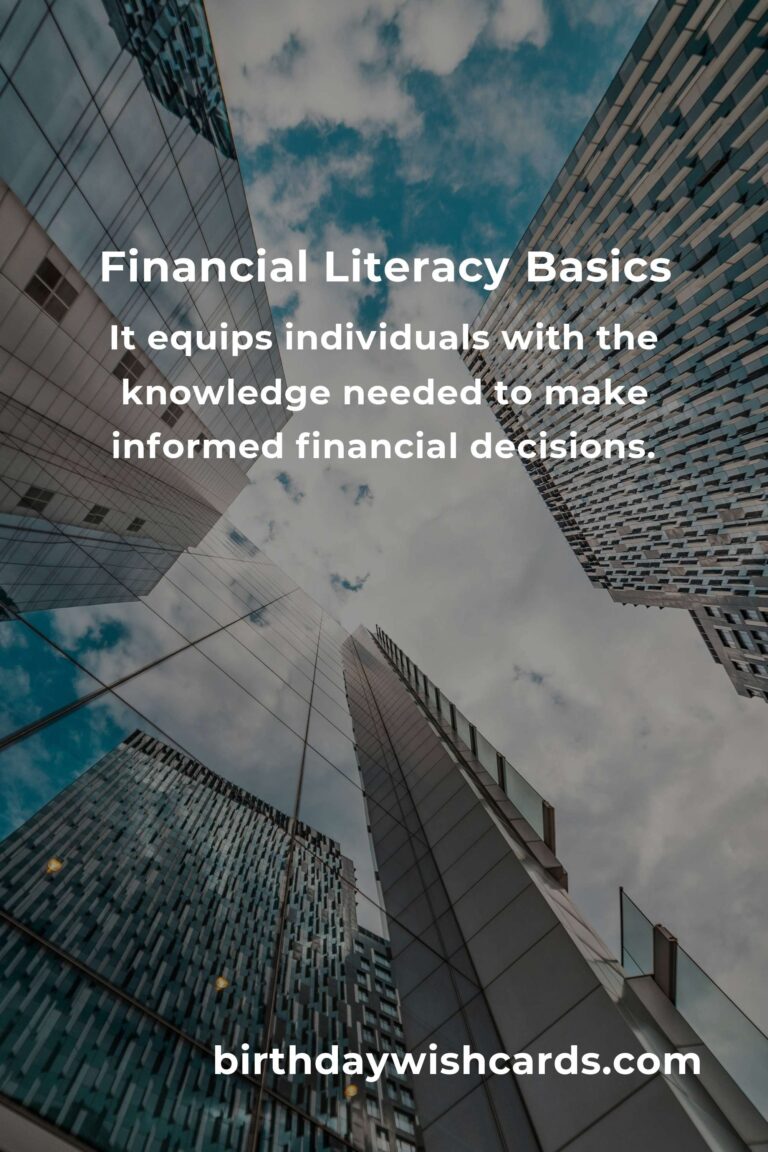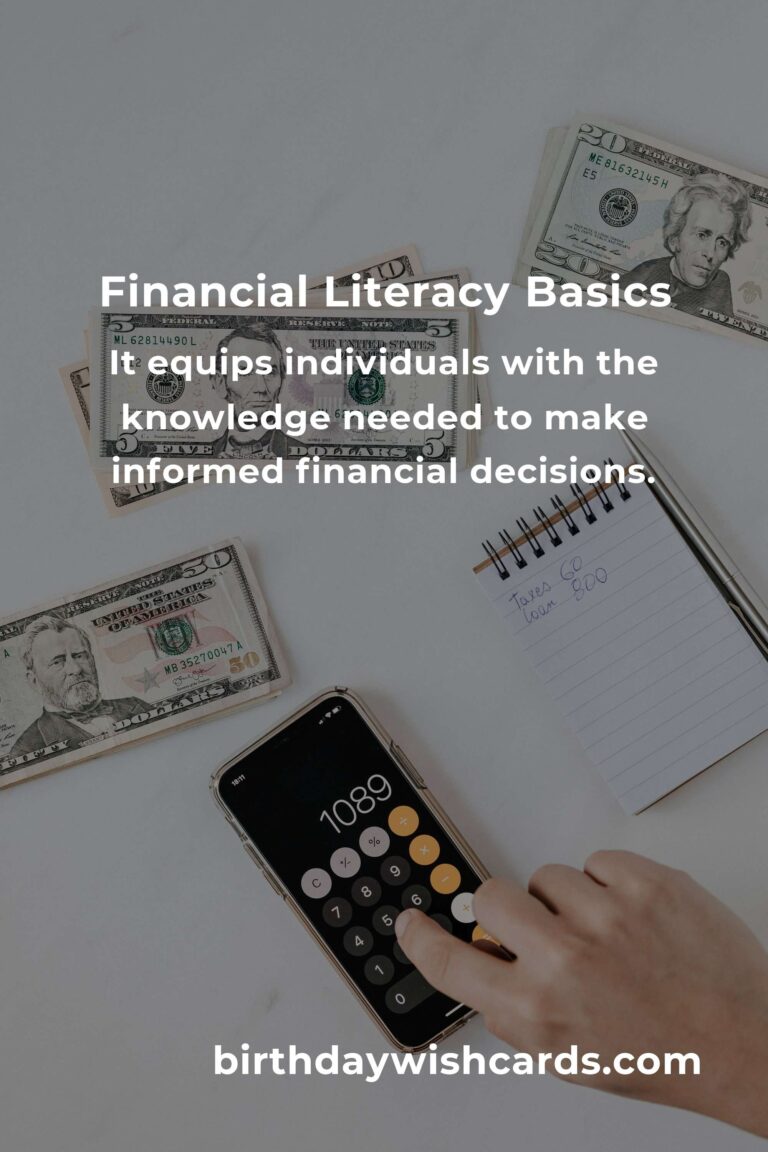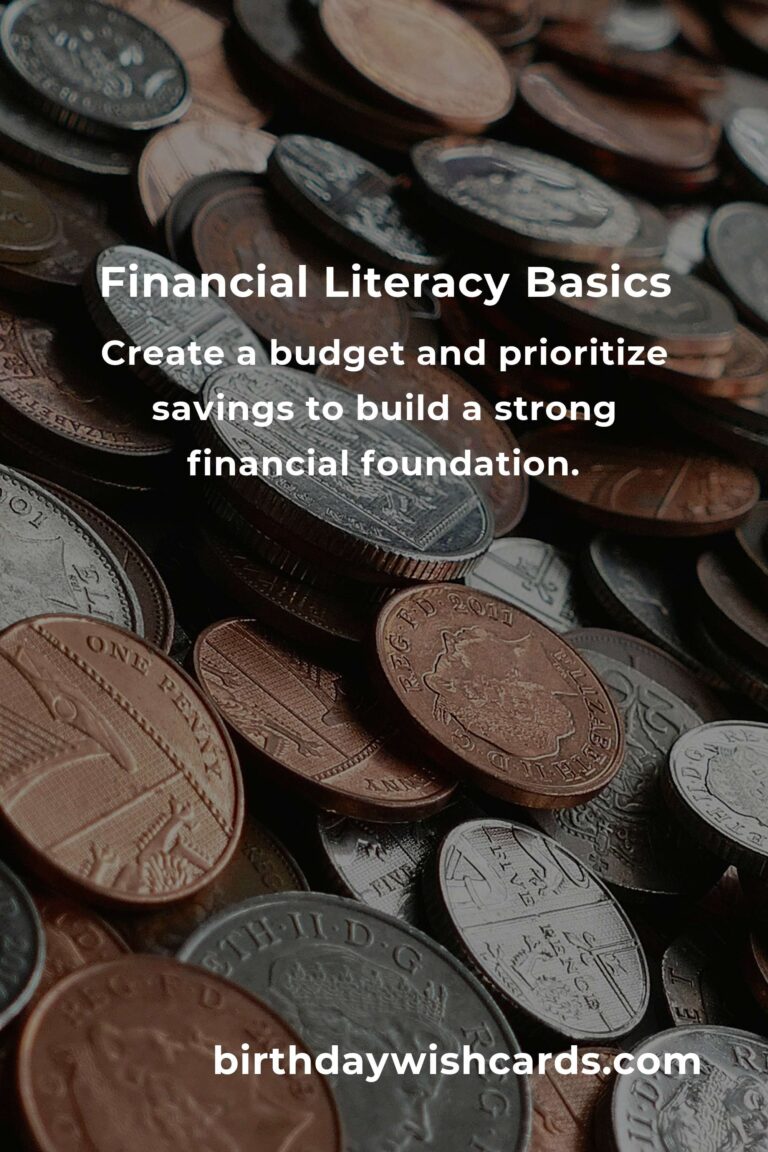
Understanding financial literacy is crucial for making informed decisions about your personal finances. As a beginner, it can be overwhelming to navigate the vast world of finance, but with the right knowledge and tools, you can build a strong financial foundation.
What is Financial Literacy?
Financial literacy refers to the ability to understand and effectively use various financial skills, including personal financial management, budgeting, and investing. It is a lifelong journey of learning how to manage money wisely to achieve financial well-being.
Why is Financial Literacy Important?
Financial literacy is important because it equips individuals with the knowledge needed to make informed financial decisions. These decisions can have long-term impacts on personal wealth, quality of life, and overall financial security. By becoming financially literate, you can avoid common pitfalls like excessive debt and make the most of your financial resources.
Key Components of Financial Literacy
1. Budgeting
Budgeting is the process of creating a plan to spend your money. This spending plan is called a budget. Creating a budget helps you understand where your money is going and ensures you have enough money for the things you need and want.
2. Saving
Saving is setting aside money for future use rather than spending it immediately. It’s important to build an emergency fund and save for long-term goals like retirement or buying a home.
3. Investing
Investing involves committing money to an endeavor with the expectation of obtaining an additional income or profit. Understanding different investment options and their risks is a key part of financial literacy.
4. Managing Debt
Managing debt effectively involves understanding the terms of your loans and credit cards, making timely payments, and knowing how to reduce or eliminate debt over time.
Steps to Improve Your Financial Literacy
1. Educate Yourself
Take advantage of free resources available online, such as financial literacy courses, webinars, and articles. Books on personal finance can also be a great source of information.
2. Track Your Spending
Keep track of your income and expenditures to understand your financial habits. This can help you identify areas where you can cut costs and save more.
3. Set Financial Goals
Identify short-term and long-term financial goals. Setting clear objectives will help you create a plan and stay motivated to achieve them.
4. Create a Budget
Use your spending and income information to create a realistic budget that helps you manage your finances effectively.
5. Start Saving
Make savings a priority in your budget. Even small amounts can add up over time and provide a financial cushion for emergencies.
Conclusion
Gaining financial literacy as a beginner involves educating yourself, understanding key components like budgeting and saving, and taking practical steps to manage your finances effectively. By building a strong financial foundation, you can achieve financial stability and security in the long run.
Financial literacy is crucial for making informed decisions about personal finances. It equips individuals with the knowledge needed to make informed financial decisions. Key components of financial literacy include budgeting, saving, investing, and managing debt. Educate yourself and track your spending to improve financial literacy. Create a budget and prioritize savings to build a strong financial foundation.
#FinancialLiteracy #Budgeting #Saving #Investing #DebtManagement #PersonalFinance

